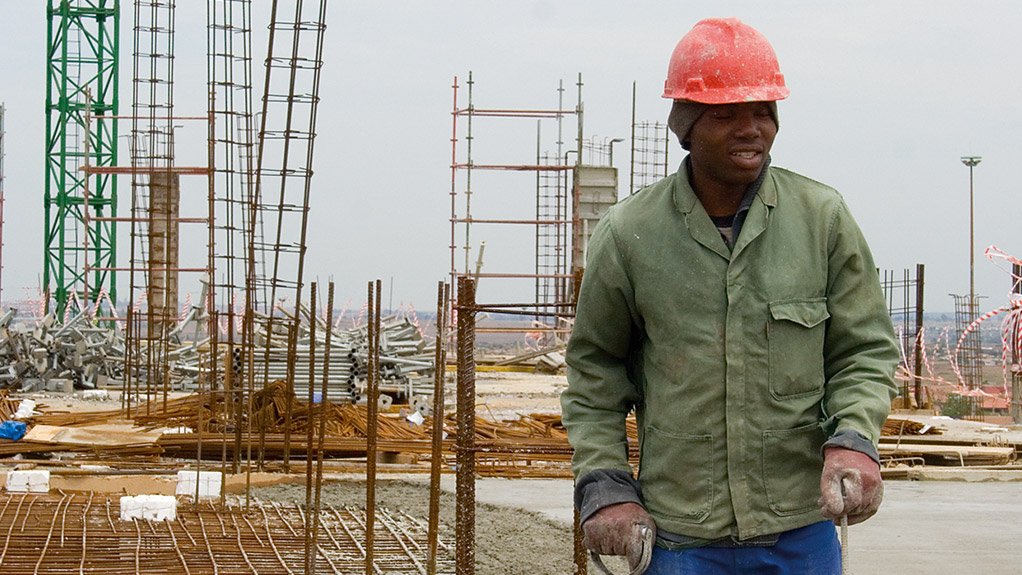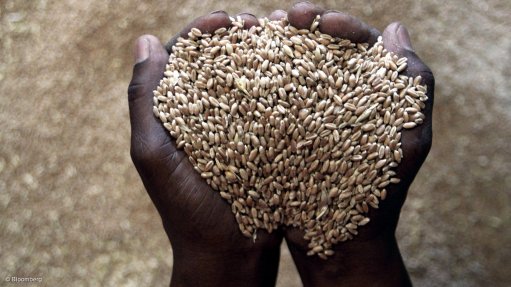African cement demand to remain robust, underpinned by infrastructure deficit


CONSTRUCTION The high growth, but low levels of infrastructure, means that Africa is expected to have a robust appetite for cement until 2050
Photo by Duane Daws
Austria-based specialist refractory supplier RHI Group and South African cement and lime kiln specialist Dickinson Group foresee sustained demand in Africa for cement and related products throughout the next three decades.
Despite additional cement production capacity to be built in Africa, the scale of demand will require cement from all parts of the world, says RHI Cement and Lime GM Thomas Jakowiak.
“The growth of demand has been projected to be significantly higher than production capacity, even under a scenario of large growth in the capacity on the continent,” he emphasises.
The refractory supply industry, however, could be heading into a period of consolidation, in light of decreasing prices and the multitude of suppliers.
RHI is keenly aware of the challenge and has structured the organisation to be able to control input costs, including its own magnesite mines to produce its magnesia refractory bricks and products, as well as positioned itself in growth markets.
“Cement and refractory growth is linked to gross domestic product (GDP) growth and the level of infrastructure spend. If GDP is favourable, demand for cement will be high and the regions will require cement production and, hence, our refractory products. This is what we foresee in Africa.”
The long-term opportunities must be seized despite short-term challenges, which can be addressed through effective information sharing across all parts of the cement value chain, says Dickinson CEO Trevor Dickinson.
“The sharing of knowledge between different portions of the supply chain enables all players to meet challenges to their companies and the industry more effectively. The Dickinson Group itself has a number of partner companies in complementary parts of the cement and lime industry supply chains to meet customers’ complex requirements.
“The first RHI-Dickinson sub-Saharan Africa cement and lime kiln conference, held in November, saw good knowledge sharing between local operators and local and international experts regarding refractory supplies and kilns. The interaction helps suppliers to assess local conditions and demands and local operators to select the most appropriate products to support their operations.”
The proportion of African cement production, compared with world production, is expected to grow from 8% to 17% between 2020 and 2050 to support the construction of infrastructure and cities.
However, Jakowiak notes that the openness of the markets is critical, as effective sourcing requires access to various producers in multiple territories.
“We are already delivering our products to many operations and territories in Africa. But a critical thing for us is for local operators to have access to products from other territories, such as ours. RHI may invest in Africa if we can own or control our own sources of raw materials to ensure stable costs.”
Meanwhile, Jakowiak highlights that African cement production can form a greater part of its waste management strategy, as cement kilns can burn municipal waste, while generating a high-value product.
“Alternative fuels are commonly used in Europe. At the moment, Africa mainly uses coal, but, as the countries develop, there will be more waste to manage and a cement kiln is a productive waste incinerator.”
The use of alternative fuels does have an impact on the rotary bricks required, as the chemical weathering increases significantly, but RHI can supply specialist chemically resistant refractory bricks to meet this challenge, he says.
“The growth of the cement industry and the complexity of pricing and capacity challenges makes knowledge sharing across the industry essential to ensure that the industry can sustainably support Africa’s growth now and in the future,” concludes Dickinson.
Comments
Press Office
Announcements
What's On
Subscribe to improve your user experience...
Option 1 (equivalent of R125 a month):
Receive a weekly copy of Creamer Media's Engineering News & Mining Weekly magazine
(print copy for those in South Africa and e-magazine for those outside of South Africa)
Receive daily email newsletters
Access to full search results
Access archive of magazine back copies
Access to Projects in Progress
Access to ONE Research Report of your choice in PDF format
Option 2 (equivalent of R375 a month):
All benefits from Option 1
PLUS
Access to Creamer Media's Research Channel Africa for ALL Research Reports, in PDF format, on various industrial and mining sectors
including Electricity; Water; Energy Transition; Hydrogen; Roads, Rail and Ports; Coal; Gold; Platinum; Battery Metals; etc.
Already a subscriber?
Forgotten your password?
Receive weekly copy of Creamer Media's Engineering News & Mining Weekly magazine (print copy for those in South Africa and e-magazine for those outside of South Africa)
➕
Recieve daily email newsletters
➕
Access to full search results
➕
Access archive of magazine back copies
➕
Access to Projects in Progress
➕
Access to ONE Research Report of your choice in PDF format
RESEARCH CHANNEL AFRICA
R4500 (equivalent of R375 a month)
SUBSCRIBEAll benefits from Option 1
➕
Access to Creamer Media's Research Channel Africa for ALL Research Reports on various industrial and mining sectors, in PDF format, including on:
Electricity
➕
Water
➕
Energy Transition
➕
Hydrogen
➕
Roads, Rail and Ports
➕
Coal
➕
Gold
➕
Platinum
➕
Battery Metals
➕
etc.
Receive all benefits from Option 1 or Option 2 delivered to numerous people at your company
➕
Multiple User names and Passwords for simultaneous log-ins
➕
Intranet integration access to all in your organisation


















